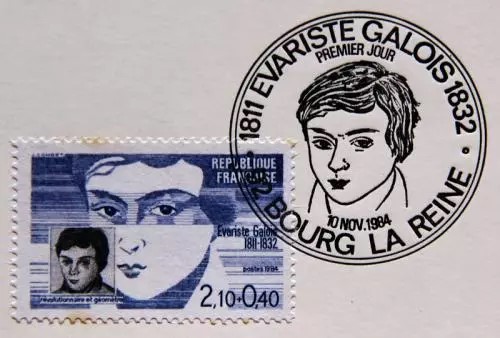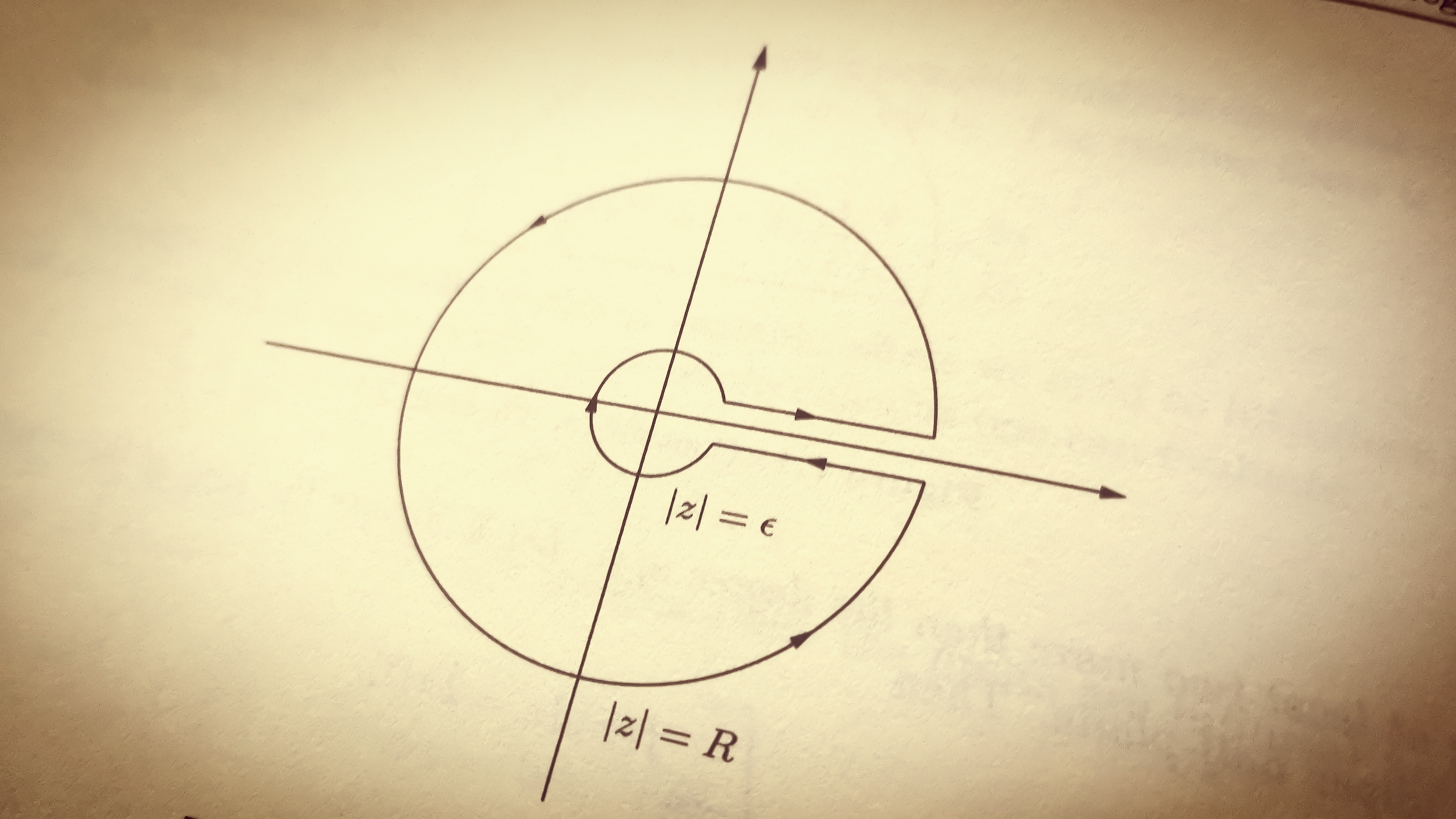学习 Galois 理论须知的群论概念
内容节选自 from J. Rotman’s Galois Theory - Appendix 1. 仅供学习时备忘使用.
Abelian Group. A group in which multiplication is commutative.
Alternating Group $A_n$. The subgroup of $S_n$ consisting of all the even permutations. it has order $\frac{1}{2}n!$.
Associativity. For all $x,y,z$, one has $(xy)z=x(yz)$. it follows that one does not need parentheses for any product of three or more factors.
Automorphism. An isomorphism of a group with itself.
Commutativity. For all $x,y$, one has $xy=yx$.
Conjugate Elements. Two elements $x$ and $y$ in a group $G$ are called conjugate if there exists $g\in G$ with $y = gxg^{-1}$.
Conjugate Subgroup. Two subgroup $H$ and $K$ of a group $G$ are called conjugate if there exists $g\in G$ with
$$K = gHg^{-1}=\left{ghg^{-1}:h\in H\right}.$$
Coset of $H$ in $G$. A subset of $G$ of the form $gH=\left{gh:h\in H\right}$, where $H$ is a subgroup of $G$ and $g\in G$. All the cosets of $H$ partition $G$; moreover, $gH=g’H$ if and only if $g^{-1}g’\in H$.
Cyclic Group. A group $G$ which contains an element $g$ (called a \textit{generator}) such that every element of $G$ is some power of $G$.
Dihedral Group $D_{2n}$. A Group of order $2n$ containing an element $a$ of order $n$ and an element $b$ of order $2$ such that $bab=a^{-1}$.
Even Permutation. A permutation that is a product of an even number of transpositions. Every $r$-cycle, for $r$ odd, is an even permutation.
Factor Group. Given a normal series $G=G_0 \supset G_1 \supset \cdots \supset G_n = {1}$, its factor group are the groups $G_i/G_{i+1}$ for $i\geqslant 0$.
Four Group $V$. The subgroup of $S_4$ consisting of
$$1,(12)(34),(13)(24),(14)(23),$$
it is a normal subgroup.
Generator of a Cyclic Group $G$. An element $g\in G$ whose powers give all the elements of $G$. A cyclic group may have seveal different generators.
Group. A set equipped with an associative multiplication such that there is a unique $e\in G$ (called the identity of $G$) with $ex=x=xe$ for all $x\in G$, and , for each $x\in G$, there is a unique $y\in G$ (called the inverse of $x$) with $yx=x=xy$. One usually denotes $e$ by $1$ and $y$ by $x^{-1}$. (Some of these axioms are redundant.)
Homomorphism. A function $f:G\rightarrow H$, where $G$ and $H$ are groups, such that $f(xy) = f(x)f(y)$ for all $x,y\in G$. One always has $f(1)=1$ and $f(x^{-1})=f(x)^{-1}$.
Image. Given a homomorphism $f:G\rightarrow H$, its image $\text{Im}(f)$ is the subgroup of $H$ consisting of all $f(x)$ for $x\in G$.
Index $[G:H]$. The number of (left) cosets of a subgroup $H$ in $G$. It is equal to $|G|/|H|$ when $G$ is finite.
Isomorphism. A homomorphism that is bijection.
Kernel. Given a homomorphism $f:G\rightarrow H$, its kernel $\text{Ker}(f)$ is the (necessarily) normal subgroup of $G$ consisting of all $x\in G$ with $f(x)=1$. One denotes this by $H\lhd G$.
Natural Map. if $H$ is a normal subgroup of $G$, then the natural map is the homomorphism $\pi: G\rightarrow G/H$ defined by $\pi(x)=xH$.
Normal Series of $G$. A sequence of subgroups
$$G=G_0\supset g_1\supset\cdots\supset G_n = {1}$$
with each $G_{i+1}$ a normal subgroup of $G_i$. (A subgroup $G_i$ may not be a normal subgroup of $G$.)
Normal Subgroup. A subgroup $H$ of a group $G$ such that for all $g\in G$,
$$gHg^{-1}={ghg^{-1}:h\in H}=H.$$
Order of an Element $x\in G$. The least positive integer $m$, if any, such that $x^m=1$, otherwise infinity.
Order $|G|$ of a group $G$. The number of elements in $G$.
$p$-group. A group in which every element has order some power of the prime $p$. if $G$ is finite, the $|G|$ is a power of $p$.
Permutation. A bijection of a set to itself; all the permutation of a set $X$ form a group under composition, denoted by $S_X$.
Quotient Group $G/H$. If $H$ is a normal subgroup of $G$, then $G/H$ is the family of all cosets $gH$ of $H$ with multiplication defined by
$$gHg’H=gg’H;$$
the order of $G/H$ is $[G:H]$; the identity element is $1H=H$; the inverse of $gH$ is $g’H$.
Simple Group $G$. A group $G\neq {1}$ whose only normal subgroups are ${1}$ and $G$.
Solvable Group. A group having a normal series with abelian factor groups.
Subgroup $H$ of $G$. A subset of $G$ containing $1$ which is closed under multiplication and inverse.
Subgroup Generated by a Subset $X$. The smallest subgroup of $G$ containing $X$, denoted by $\langle X \rangle$, consists of all the products $x_{1}^{a}x_{2}^{b}\cdots x_{n}^{z}$, where $x_i \in X$ and the exponents $a,b,\cdots,z \pm 1$.
Sylow $p$-subgroup of a Finite Group $G$. A subgroup of $G$ of order $p^n$, where $p^n$ is the highest power of $p$ dividing $|G|$. Such subgroups always exist, and any two such are conjugate, hence isomorphic.
Symmetric Group $S_n$. The group of all permutations of ${1,2,\cdots,n}$ under composition; it has order $n!$.
学习 Galois 理论须知的群论概念


